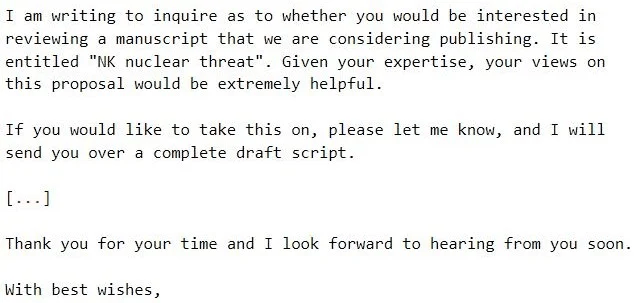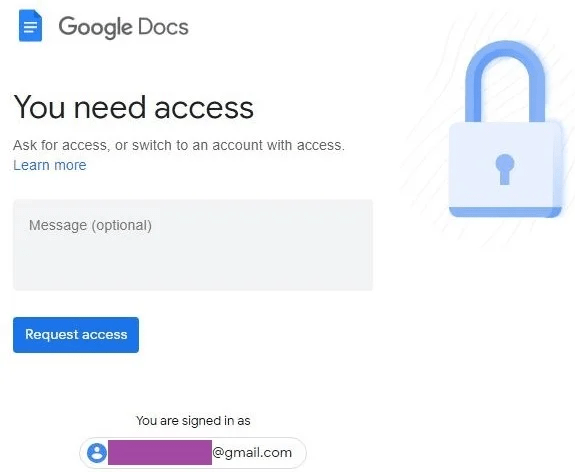North Korea-linked APT Kimsuky has been linked to a social engineering campaign aimed at experts in North Korean affairs.
SentinelLabs researchers uncovered a social engineering campaign by the North Korea-linked APT group Kimsuky that is targeting experts in North Korean affairs. The attacks are part of a broader campaign recently detailed in a joint advisory published by US intelligence.
The campaign has the objective of stealing Google and subscription credentials of a reputable news and analysis service focusing on North Korea, as well as delivering reconnaissance malware.
Kimsuky cyberespionage group (aka ARCHIPELAGO, Black Banshee, Thallium, Velvet Chollima, APT43) was first spotted by Kaspersky researcher in 2013. At the end of October 2020, the US-CERT published a report on Kimusky’s recent activities that provided information on their TTPs and infrastructure.
The APT group mainly targets think tanks and organizations in South Korea, other victims were in the United States, Europe, and Russia.
In the latest Kimsuky campaign, the state-sponsored group focused on nuclear agendas between China and North Korea, relevant to the ongoing war between Russia and Ukraine.
Threat actors engage in extensive email correspondence with the victims and use spoofed URLs, websites mimicking legitimate web platforms, and weaponized documents.
The attackers were spotted delivering the recently discovered reconnaissance tool ReconShark malware.
The campaign focuses on the theft of email credentials and NK News subscription credentials.
SentinelLabs attributes the campaign to Kimsuky based on the type of malware used, the attack infrastructure, and TTPs.
“A hallmark of the activity we discuss in this post is Kimsuky’s focus on establishing initial contact and developing a rapport with their targets prior to initiating malicious activities. As part of their initial contact strategy, the group impersonated Chad O’Carroll, the founder of NK News and the associated holding company Korea Risk Group, using an attacker-created domain, nknews[.]pro, which closely resembles the legitimate NK News domain nknews.org.” reads the report published by SentinelOne “The initial email requests the review of a draft article analyzing the nuclear threat posed by North Korea.”
The researchers observed Kimsuky sending an HTML-formatted spear phishing message which requests them to review a draft analysis of the nuclear threat posed by North Korea. The email is crafted to stimulate a subsequent conversation with the recipient, it impersonates NK News leadership and lacks any malicious artifacts.

Upon engaging the target in the conversation, the APT group eventually follows up with an email that contains an URL to a Google document.
In case the recipient is not responsive, the nation-state actors follow up with a reminder email in an attempt to engage the target in conversation.
The attackers spoofed the URL’s destination by setting the href HTML property to direct to a website under the control of the attackers.
The displayed URL points to a document hosted on Google Docs, delving into the topic of the North Korean nuclear threat. The article contains visible edits to give the impression of a genuine draft article.
The spoofed destination of the URL redirects the victim to a Kimsuky’s website that masquerades as a legitimate Google Docs site for requesting document access, such as
https[://]drive-google[.]shanumedia[.]com/pdf/ul/ji78fghJHKtgfLKJIO/s2.php?menu=ZGFu[...]vbQ==
The URL includes a Base-64 encoded segment that is the value of the menu URL query parameter, which resolves to the victim’s email address.
The email address is displayed in the fake login page to trick the visitor into thinking that is is a legitimate page of access request.
The researchers also observed threat actors distributing password-protected weaponized Office documents during conversations with the victims. The archive was used to deploy the ReconShark reconnaissance tool.
“SentinelLabs remains actively engaged in monitoring the activities conducted by Kimsuky. The findings presented in this post highlight the group’s persistent commitment to targeted social engineering attacks and underscore the need for increased awareness and understanding of Kimsuky’s tactics among potential targets.” concludes the report. “Maintaining vigilance and implementing effective security measures are imperative to mitigate the risks posed by this persistent threat actor.”
Follow me on Twitter: @securityaffairs and Facebook and Mastodon
(SecurityAffairs – hacking, Kimsuky)
The post Experts detail a new Kimsuky social engineering campaign appeared first on Security Affairs.


